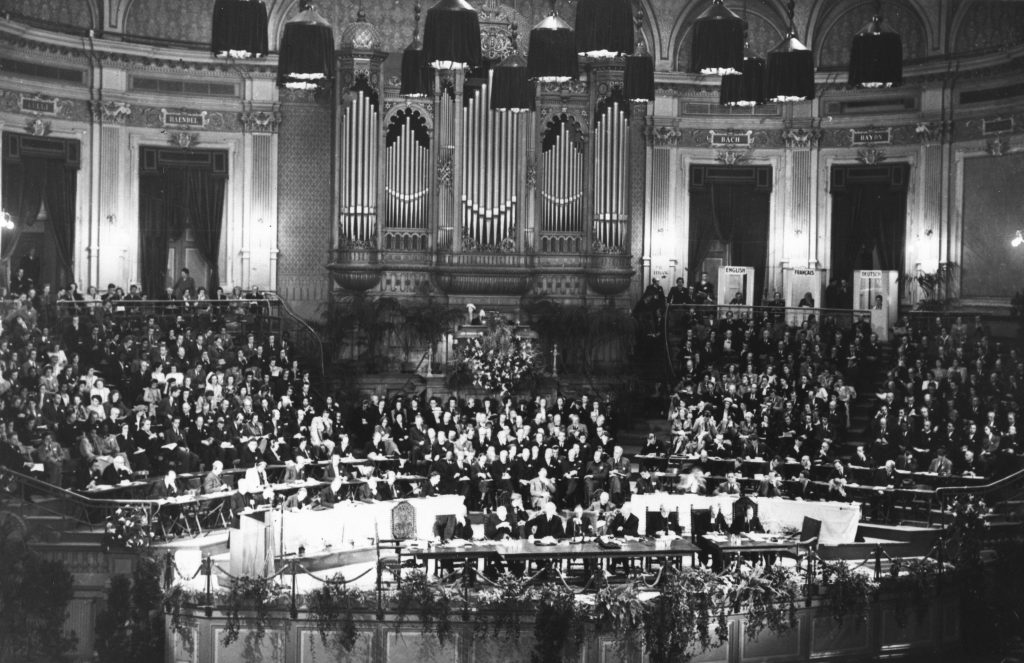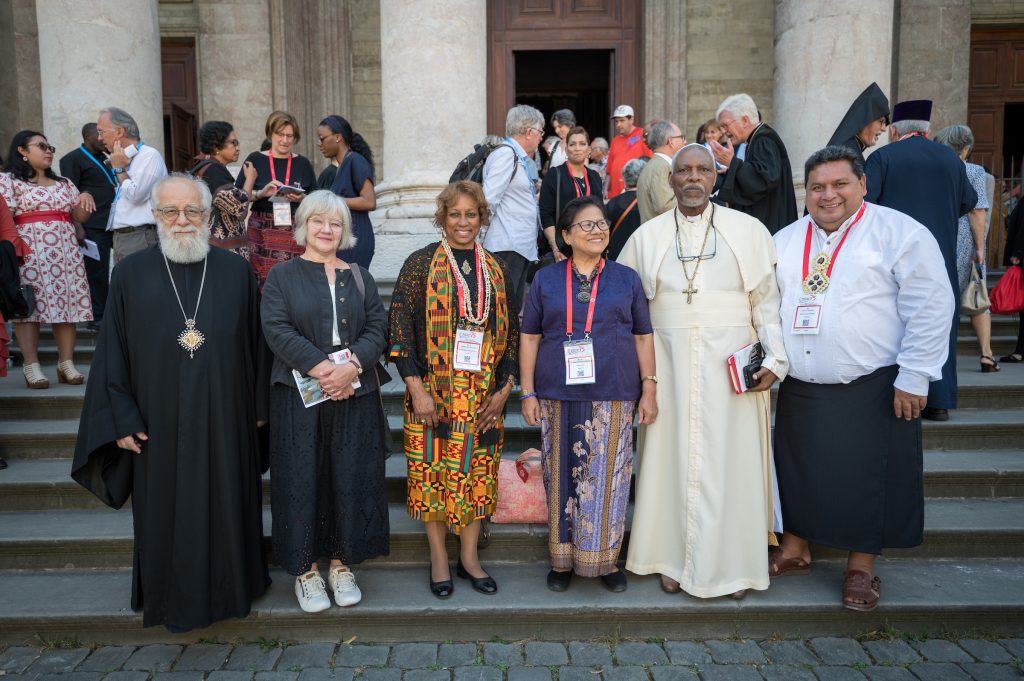It seems like a year of 75th anniversaries in 2023. It’s the 75th anniversary of the Universal Declaration of Human Rights. We have just celebrated the Windrush generation, the National Health Service is 75 too. One anniversary which may have slipped the radar is the 75th birthday of the World Council of Churches.
The origins of the WCC were birthed in student lay movements of the 19th century, the 1910 Edinburgh mission conference and the 1920 encyclical from Synod of Constantinople which called for a ‘fellowship of churches.’ However, it wasn’t until 1948, in the shadow of global destruction from World War II, that the first gathering took place in Amsterdam. Today the WCC brings together churches, denominations and church fellowships in more than 120 countries and territories throughout the world, representing over 580 million Christians and including most of the world’s Orthodox churches, scores of Anglican, Baptist, Lutheran, Methodist and Reformed churches. There are now 352 member churches.

At times the WCC has been controversial, especially for evangelicals. “During the cold war, the WCC provided a forum for East-West dialogue. In 1961 the International Missionary Council was merged with the WCC, giving the Council an enlarged agenda in world mission and evangelism. The Programme to Combat Racism, although controversial, assisted in ending apartheid in southern Africa. A landmark document, Baptism, Eucharist, and Ministry (1982) provided some theological consensus among churches in the quest for full Christian unity.” [from the WCC website]
The WCC central committee, its chief governing body, met a few weeks ago to firm up the WCC strategic plan which runs from 2023-2030. The overall theme is rooted in a pilgrimage of justice, reconciliation and unity with the various commissions undertaking work around mission and evangelism, faith and order, combating issues of racial injustice, gender justice and eco-justice. Many of the themes which are priorities for the WCC are also issues which churches in England are passionate about too.

URC minister Rev Dr Susan Durber who until recently was based in Taunton has played a very significant role in the Faith and Order commission which brings, ‘theologians from very different cultures and church traditions work together on theological themes that help churches to move from separation to common life. Dr Durber was appointed a president at the last General Assembly.
At the 11th General Assembly in Karlsruhe last September, four English Church representatives were elected to serve on the central committee many of whom are well known to CTE. Grace Thompson (C of E), Lucy Docherty (C of E), Sarah Moore (URC), Bishop Mar Awraham (Holy Catholic Apostolic Assyrian Church of the East).
More recently Rev Dr Janet Corlett, a Methodist minister, has been appointed to the Commission for World Mission and Evangelism.
Main photo credit: © Albin Hillert/WCC